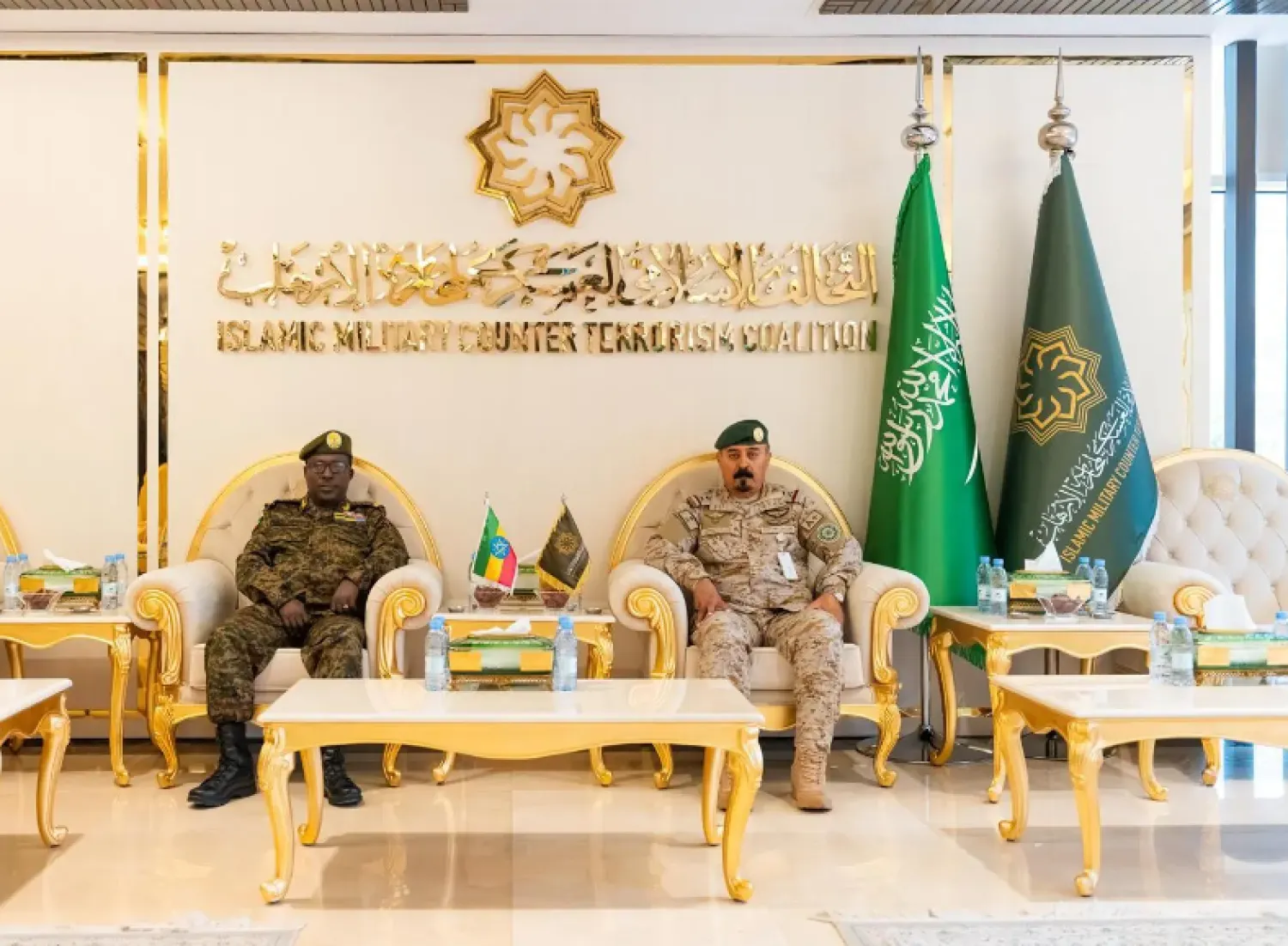Secretary-General of the Islamic Military Counter Terrorism Coalition (IMCTC) Maj. Gen. Mohammed Al-Moghedi met on Monday with the Ethiopian Military Attaché in Saudi Arabia Maj. Gen. Seid Tikuye and his accompanying delegation.
The delegation was briefed on the key activities of the coalition, and its approach to combating terrorism, which focuses on four main areas: intellectual, media, counter-terrorism financing, and military, SPA reported.
The officials also reviewed the coalition’s publications, studies, and research related to these areas, visited the Situation Assessment Room, which is responsible for monitoring, analysis, and follow-up operations, and studied the terrorism measurement indicators used to analyze and monitor terrorist events and groups worldwide.
The visiting delegation commended the professional techniques and methodologies used to assess the dimensions and strategies of extremist groups, as well as the efforts of the IMCTC in serving the member states and coordinating efforts.
Al-Moghedi thanked the delegation for the visit, and praised the significant efforts exerted by Ethiopia in its fight against terrorism.
He said the coalition hopes that Ethiopia will join it and work alongside member states in combating terrorism and extremism.
IMCTC Secretary-General Holds Talks with Ethiopian Military Attaché

Photo by SPA

IMCTC Secretary-General Holds Talks with Ethiopian Military Attaché

Photo by SPA
لم تشترك بعد
انشئ حساباً خاصاً بك لتحصل على أخبار مخصصة لك ولتتمتع بخاصية حفظ المقالات وتتلقى نشراتنا البريدية المتنوعة







